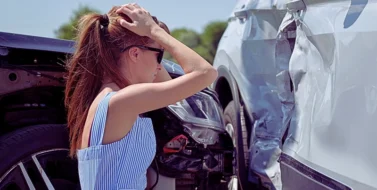Motor vehicle accidents are the leading cause of death for teen drivers in America and have become a serious public safety and health issue. In 2007, many states-including Illinois-enacted a number of stringent laws affecting teen drivers. Prior to these laws, teens in Illinois accounted for about 6 percent of the state’s licensed drivers but represented a significant number of the state’s traffic fatalities. However, after more than three years, Illinois reports that their new and strict teen driving laws have reduced the Illinois teen motor vehicle accident death rate and are in fact saving young lives.
The new Illinois teen driving laws, in essence, established a graduated driver licensing (GDL) program in order to make younger drivers more responsible. The program sets out strict requirements for new teen drivers including:
- Increasing the of time that a teen was required to have a learner’s permit
- Imposing more supervised street driving and passenger restrictions
- Setting stricter curfews
Illinois’ GDL program requires new drivers to complete three driving stages. A learner’s permit, the first stage a driver must complete, must be held for nine months. The driver must also complete 50 hours of supervised practice driving-including 10 hours at night-during the learner’s permit period. The law also mandates passenger restrictions and mobile communication prohibitions.
States all across the country have enacted GDL laws, and, according to the Insurance Institute for Highway Safety (IIHS), dramatically reduce teen-related traffic crashes. Every state, accept North Dakota have implemented the three driving stages.
For the Prairie State, teen driving deaths dropped 50 percent since this teen driver safety law took effect in January 2008. According to Illinois State Police (ISP), 146 teens died in traffic crashes in 2007, but teen driving deaths dropped to 73 in both 2009 and 2010. Federal and Illinois traffic safety organizations attribute the reduction in human loss to the state’s GDL law.
As a compliment to the GDL legislation, Illinois has implemented other safe driver initiatives geared at teens. Programs, including the states’ Operation Teen Safe Driving, have focused on curtailing risky behaviors, including texting, cell phone use, and drunk driving, which distract or impair younger drivers. The state also grants awards to schools that have successful Teen Safe Driving Programs.
In 2009, eight teens (ages 16 to 19) lost their lives every day from motor vehicle injuries. Per mile driven, this same group is four-times more likely than older drivers to crash. For young people in Illinois, their state’s three-year-old law has contributed greatly to making the roadways safer for them and for those with whom they share the road.





